
Skincare Products as a Natural Alternative to Topical Steroids and NSAIDs
In the world of skincare and pain management, it’s easy to fall into the trap of relying on quick fixes
Your skin is not just a beautiful surface. It’s your largest and most amazing organ, a living barrier that defends you from the harsh environment. It also keeps your inner world in harmony. You could say your skin is the glue that binds you together. To keep your skin healthy and happy, you need to understand its functions and how to pamper it. Your skin deserves your attention and care. By investing in your skin, you can boost your well-being and shine with confidence. Let’s dive into the wonders of our skin and learn how to love it more.
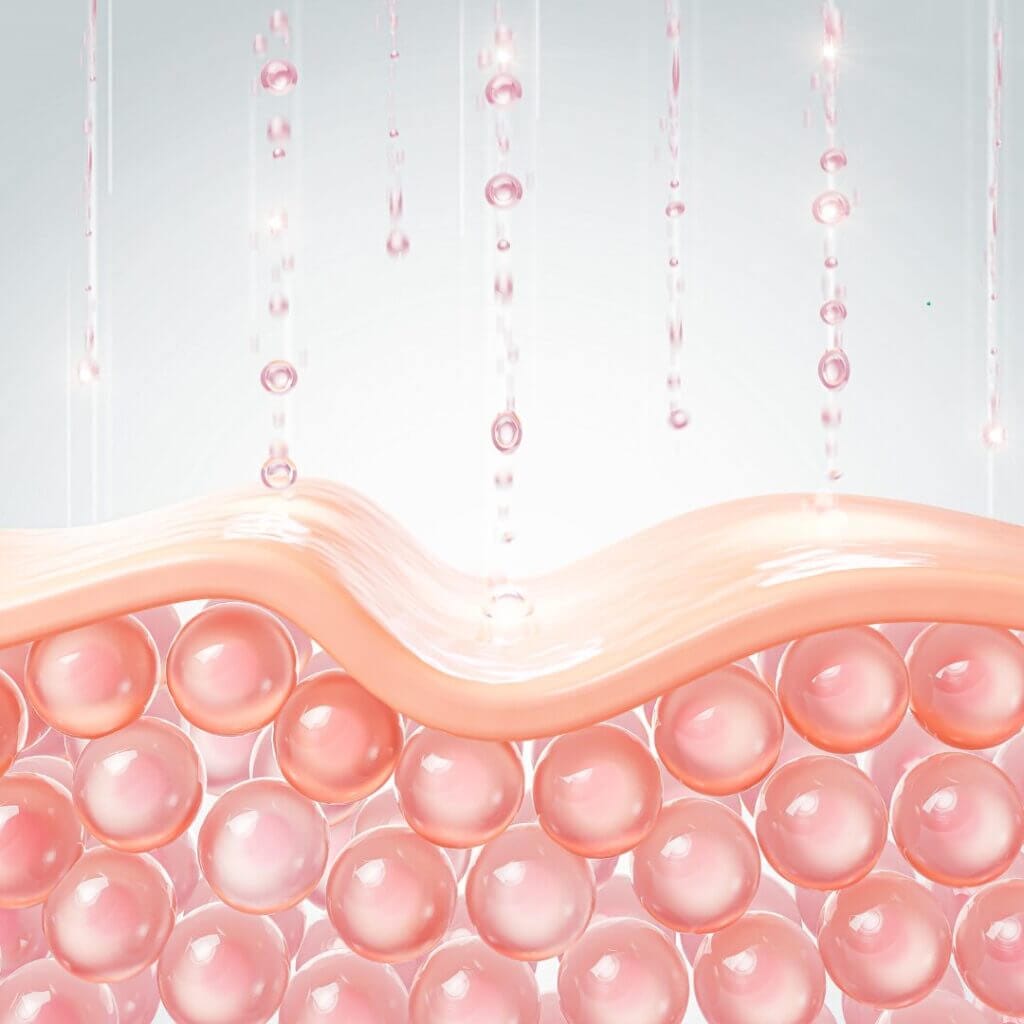
Imagine a multi-layered fortress guarding your internal kingdom. That’s essentially what the skin is. It’s composed of three main layers. The first layer is the outer hull of the body, known as the epidermis. This outermost layer of our skin is like a sturdy brick wall made up of keratin-rich cells that constantly shed and regenerate.
The next layer of the skin is called the dermis. This middle layer is a fibrous meshwork containing blood vessels, nerves, hair follicles, and glands. The dermis provides structure and elasticity while also housing the sensory receptors that allow us to feel.
Last but certainly not least, we have the third and final layer of our skin called the hypodermis. The hypodermis is the deepest layer of our skin. It’s a fatty cushion that insulates, stores energy, and anchors the skin to underlying tissues.
We’ve learned that the skin is made of three layers that are responsible for multiple functions. Now, let’s learn more about what the skin does.

The trifecta of flesh, known as our skin, performs a multitude of vital tasks on a daily basis. Our skin acts as a shield, offering us protection. It shields us from harmful UV rays, pathogens, and physical injuries.
Our skin also plays a vital role in temperature regulation. When we’re hot our skin sweats to cool us down. When we’re cold, our skin will shiver to conserve heat. Another thing our skin is responsible for is sensation. It allows us to feel touch, pressure, pain, and temperature.
Another important role of our skin is communication. Our skin often reflects our emotions as well as our health. It does this by visual clues such as blushing, sweating, and changes in color.
Our skin works as a shield, helps regulate body temperature, and facilitates communication, but there’s one more vital role the skin is responsible for, and that is Vitamin D synthesis. Our skin produces vitamin D, which is essential for bone health and immune function. With all of these important aspects, everyone should know how to care for their skin.
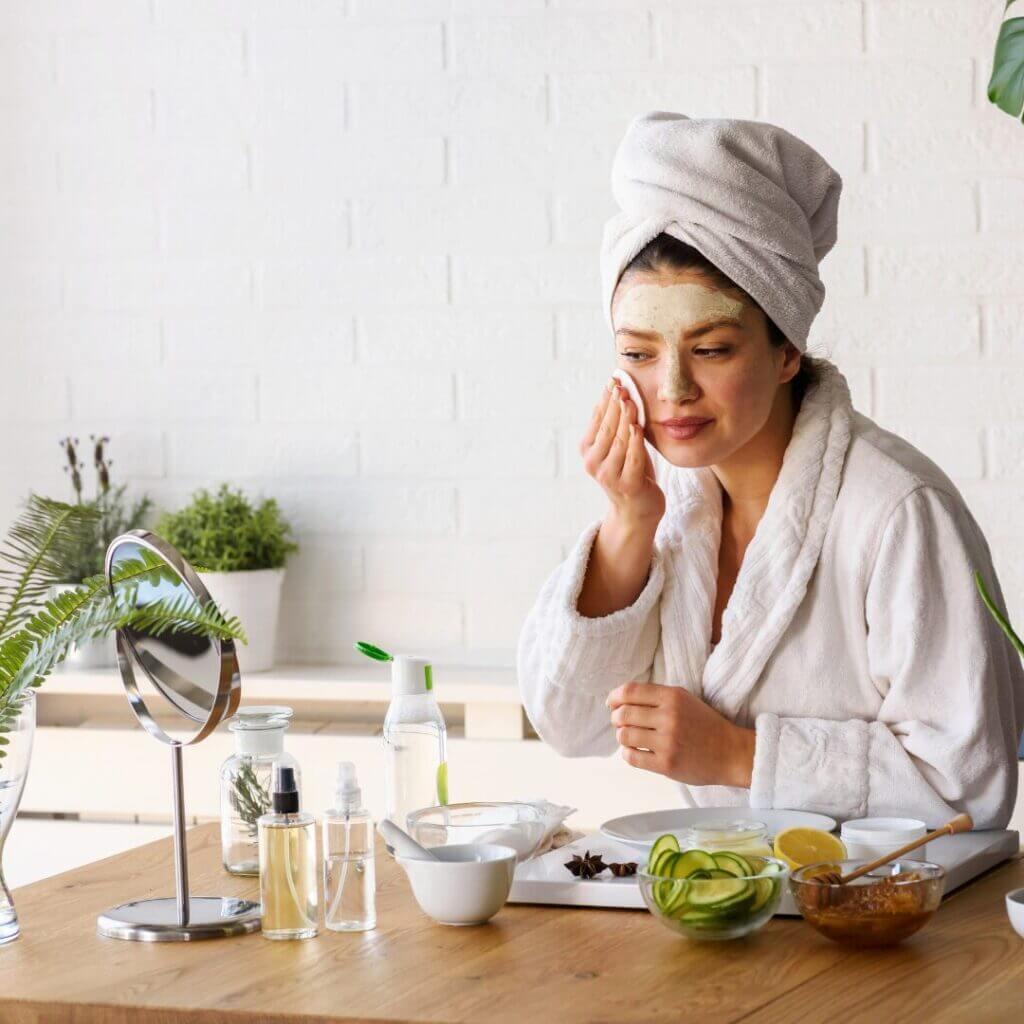
Our skin is a fortress. Just like any fortress, it needs regular maintenance to stay strong and look good. When it comes to fortifying your fortress, in this case, your skin, there are some key tips you will want to be familiar with.

Get Enough Sleep
Sleep is essential for your skin’s repair and regeneration. When you sleep, your body produces growth hormone, which helps heal wounds and boost collagen production. Collagen is a protein that gives your skin strength and elasticity. Lack of sleep can also increase inflammation, impair your skin barrier function, and cause dark circles under your eyes.

Exercise Regularly
Exercise can improve your blood circulation, which delivers oxygen and nutrients to your skin cells and removes waste products and toxins. This can help your skin look more radiant and healthy. Exercise can also reduce stress, which can trigger or worsen skin conditions like acne, eczema, and psoriasis.

Don’t Smoke
Smoking can damage your skin in many ways. It can reduce blood flow to your skin, depriving it of oxygen and nutrients. It can also break down collagen and elastin, which are the fibers that keep your skin firm and elastic. Smoking can also increase the production of free radicals, which are unstable molecules that can cause oxidative stress and damage your skin cells. Smoking can also make your skin more prone to infections, delay wound healing, and increase your risk of skin cancer.

Drink Plenty Of Water
Water is vital for your skin’s hydration and function. Water helps maintain your skin’s moisture balance, plumpness, and elasticity. It also helps flush out toxins and impurities from your skin and body. Dehydration can cause your skin to become dry, dull, flaky, and prone to wrinkles.
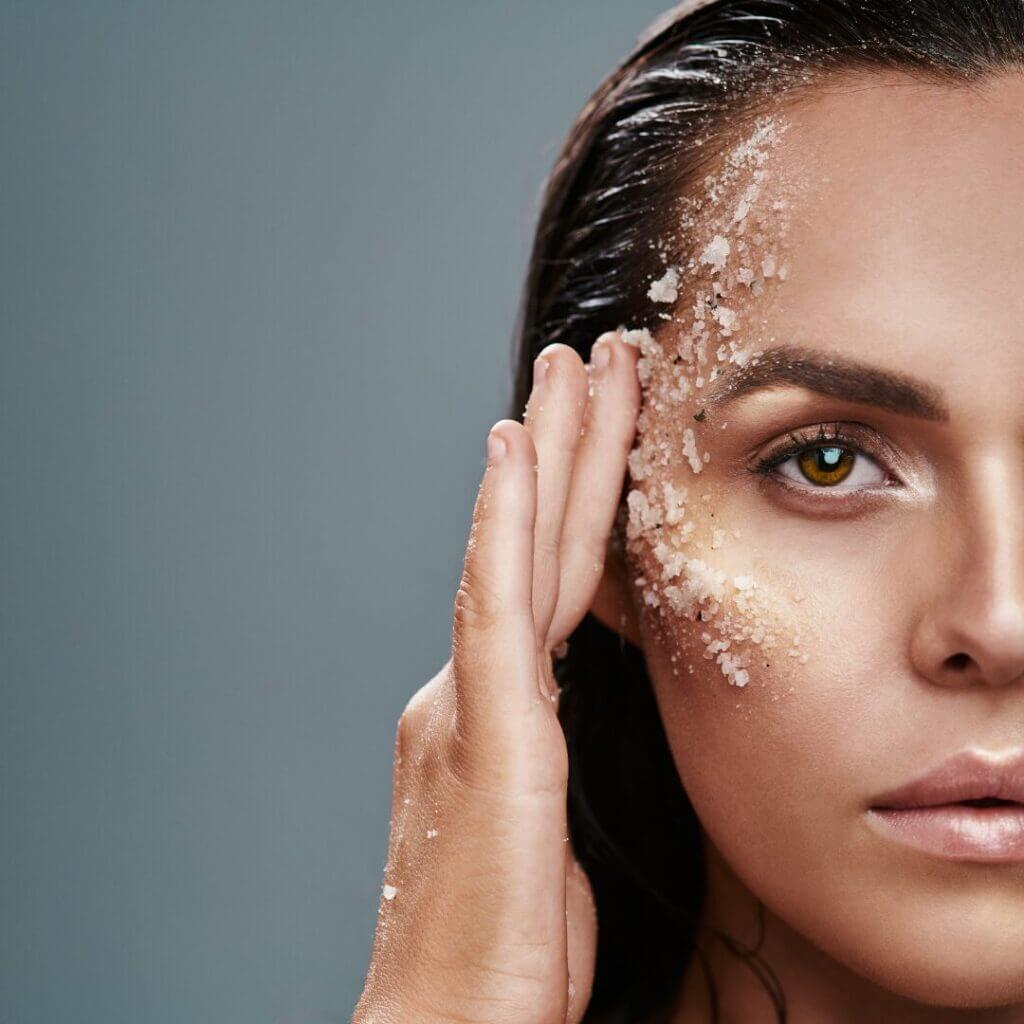
Exfoliate Your Skin
Exfoliation is the process of removing dead skin cells from the surface of your skin. This can help improve your skin’s texture, tone, and clarity. It can also unclog your pores, prevent acne, and enhance the absorption of other skincare products. However, exfoliation should be done gently and sparingly, as overdoing it can cause irritation, inflammation, and damage to your skin barrier.
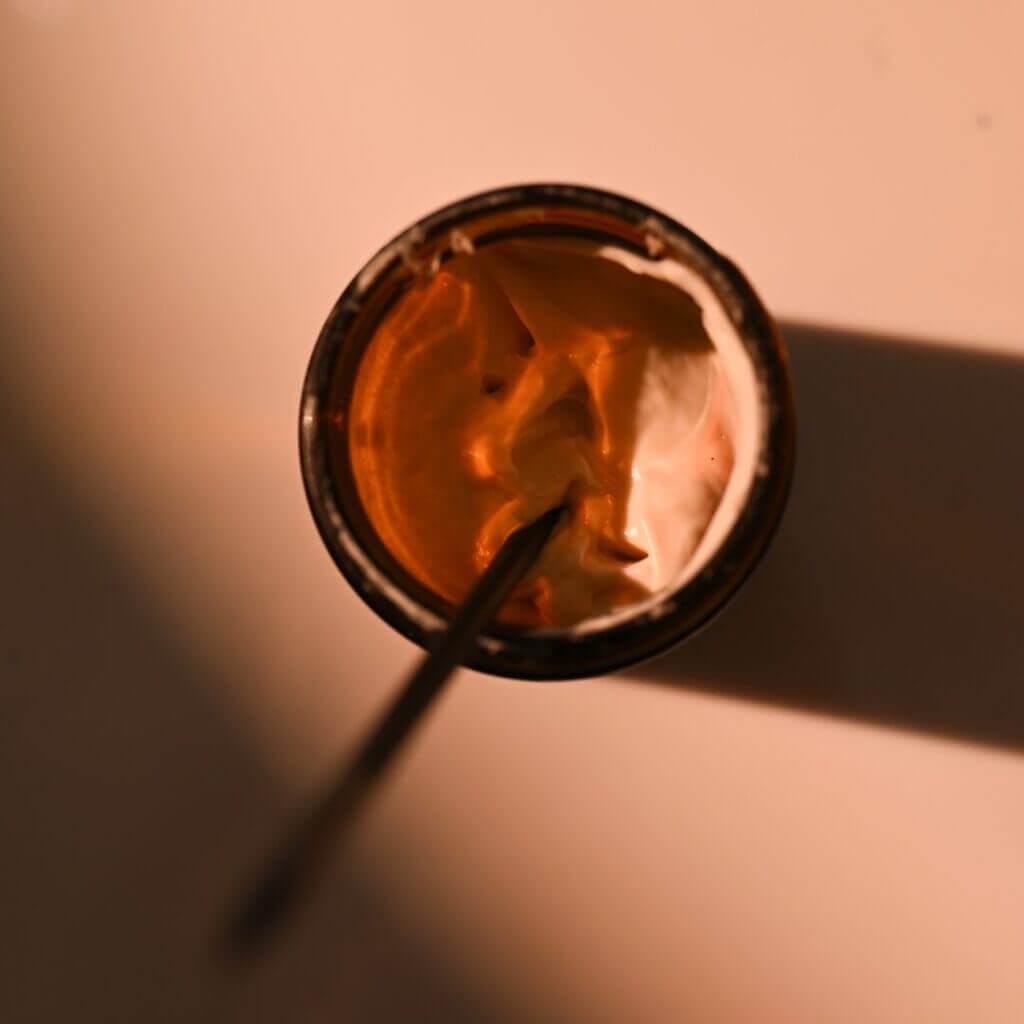
Moisturize Your Skin
Moisturizing your skin is important to keep it hydrated, soft, and supple. Moisturizers work by trapping water in your skin or replenishing water loss from your skin. They can also help protect your skin from environmental factors, such as dry air, wind, and cold.

Protect Your Skin From The Sun
The sun is one of the main causes of skin aging and damage. The sun emits ultraviolet (UV) rays, which can penetrate your skin and cause oxidative stress, inflammation, DNA damage, and collagen breakdown. This can lead to signs of aging, such as wrinkles, sagging, spots, and uneven skin tone. It can also increase your risk of skin cancer. The best way to protect your skin from the sun is to avoid excessive sun exposure, especially when the sun is strongest. You should also wear protective clothing, such as a hat, sunglasses, and long sleeves, and apply a broad-spectrum sunscreen with an SPF of at least 30 every day, even on cloudy days.
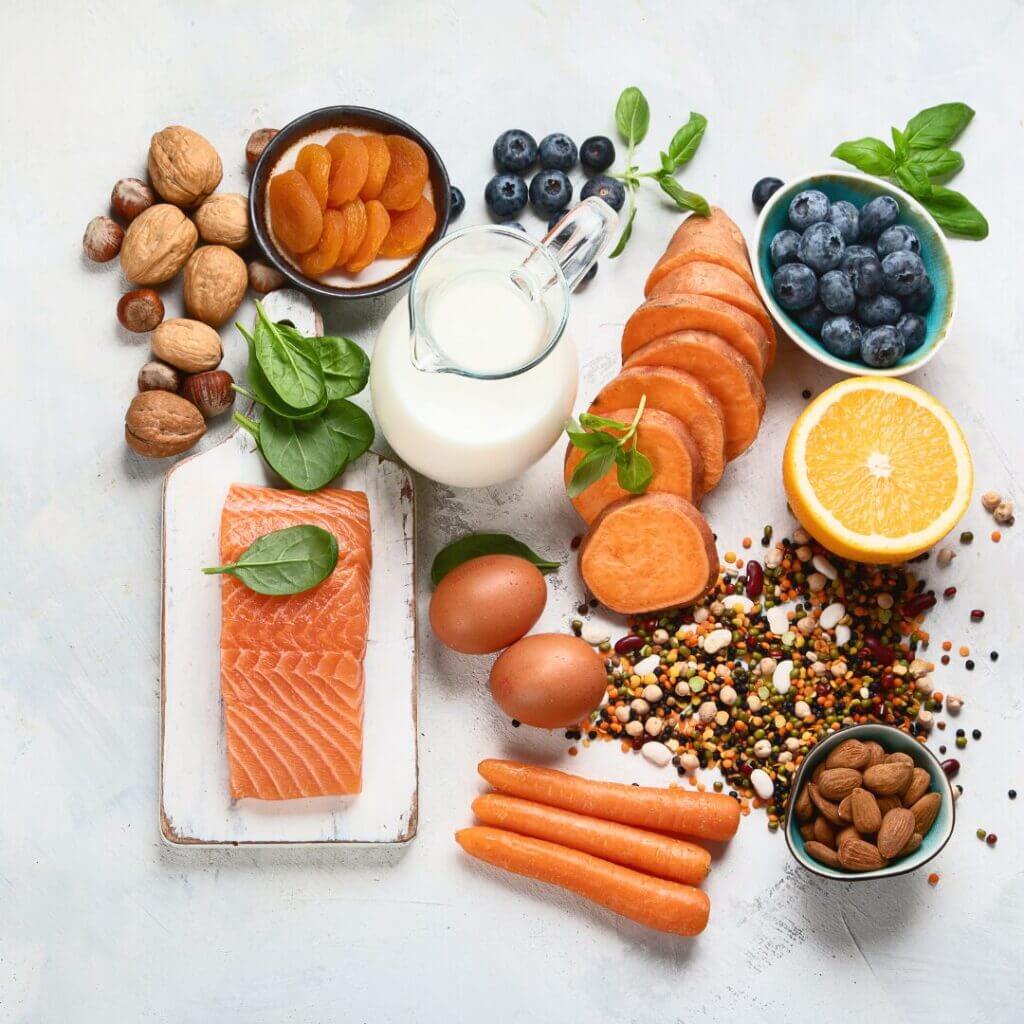
Nourish Your Skin From Within
Nourish your skin with plenty of fruits, vegetables, and whole grains. Your diet can have a significant impact on your skin’s health and appearance. Eating a balanced diet rich in fruits, vegetables, and whole grains can provide your skin with essential vitamins, minerals, antioxidants, and phytochemicals that can help protect your skin from oxidative stress, inflammation, and damage. Some of the best foods for your skin include berries, citrus fruits, leafy greens, tomatoes, carrots, sweet potatoes, nuts, seeds, fatty fish, and green tea.

Reduce Stress To A Minimum
According to the American Academy of Dermatology, “As the body’s largest organ, the skin often reflects what’s happening inside your body. Stress can cause increased inflammation, slow down wound healing, and negatively impact skin conditions.”
Stress can affect your skin in various ways. Stress can trigger or worsen skin conditions, such as acne, eczema, psoriasis, and rosacea. Stress can also impair your skin’s barrier function, reduce its hydration, and increase its sensitivity. Stress can also make you more prone to bad habits, such as smoking, drinking, or picking at your skin. If you need help managing stress, consider practicing relaxation techniques like yoga and meditation or embracing the healing powers of nature.

Stay away from harsh chemicals and irritants. Watch out for ingredients in many common soaps, cosmetics, and even laundry detergents that could harm your skin. Eat well and exercise often. These are all excellent ways to maintain your skin’s health and happiness! Your skin is one of a kind. Pay attention to its needs, notice any changes, and give it the respect it deserves. By learning about its functions and following tips like the ones above, you can preserve your skin’s health and beauty for a many trips around the sun.

In the world of skincare and pain management, it’s easy to fall into the trap of relying on quick fixes

Out of all the Mother’s Days, we can all agree this is one for the records! Most of us are

The skin is more than just a surface; it’s a living organ constantly renewing itself. When you use ingredients that

For centuries, the sun-kissed Italian orchards have yielded a skincare treasure: the bergamot tree. This citrus gem, with its elegant

The sun—it’s more than a source of light. It’s a life-giving force that nourishes our bodies, lifts our spirits, and

We’ve all been the victim of UV rays and their harm at least once. I’m sure you remember the burning,
Disclaimer: The content on this site is for informational purposes only and is not intended as medical advice, diagnosis, or treatment. Statements and products have not been evaluated or approved by the FDA and are not intended to diagnose, treat, cure, or prevent any disease. You must be 21 years or older to make a purchase. Always consult a qualified healthcare professional before making health-related decisions.